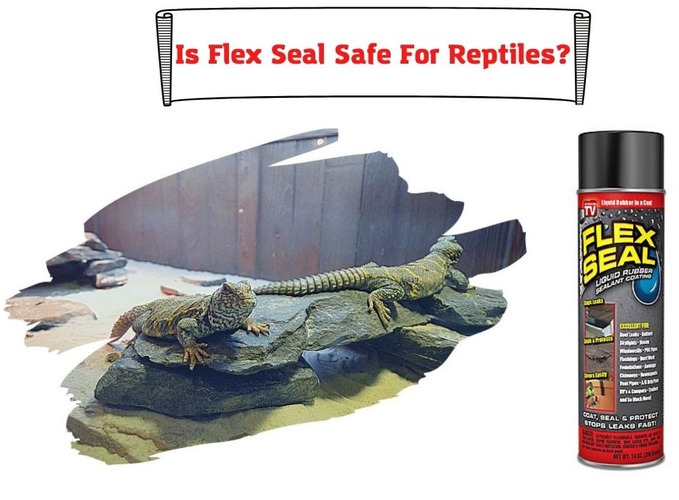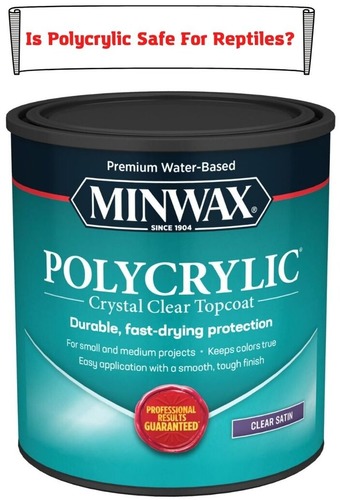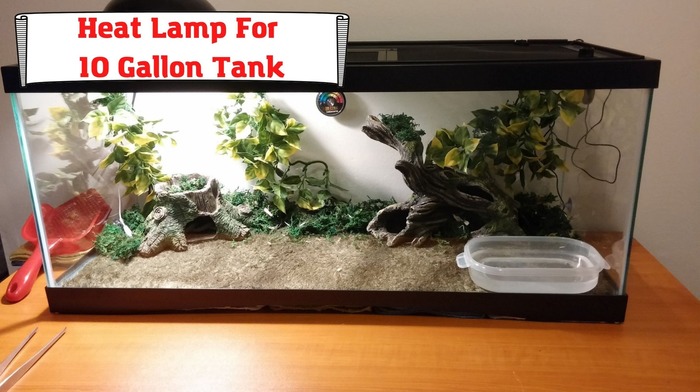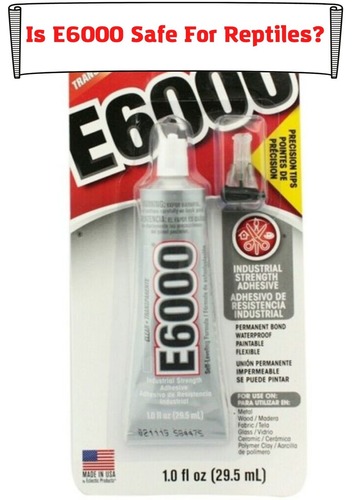Loctite offers a huge range of products that can be used to seal or assemble the enclosure for your reptile. But before using these products, you should make sure that none of the components may be harmful to your animal. We have to say that not all Loctite products are equally safe for animals. And not all animals will be glad to chew that Loctite and get poisoned.
Reptiles live in high moisture, so the sealants should be special so that they couldn’t be affected by water. You should not only check the components of the Loctite product you want to use for your reptile but check whether someone else has already used this product for the purposes you need. Be careful – you may easily kill your animal if you make a mistake when choosing a sealant.
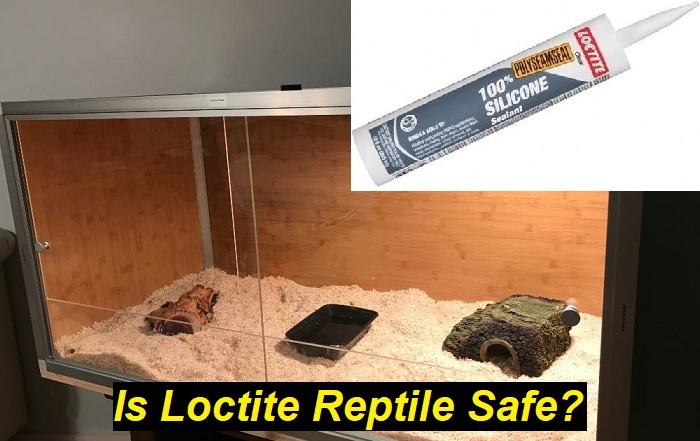
Here’s what we are going to talk about:
- Loctite products you may want to use in the enclosure of your reptile.
- Which products of Loctite are not good for reptiles?
- Why Loctite is so popular among reptile owners?
- How to check whether a certain Loctite product is reptile safe?
- What else should you know about Loctite products and reptiles?
Let’s get started!
Loctite products – what will you want to use?
When you make an enclosure or just construct some hide for your bearded dragon or any other reptile, you will want to seal it with something. And most likely, you will use some kind of silicone or glue for different purposes. Once you come to a specialized shop, an assistant will offer you Loctite. Why?
Because this company offers a big range of products and allows buyers to choose between dozens of types of glues and sealants. This is good for those who know what they need and a nightmare for those who don’t have a clue about what they want to buy.
Here are some products you may want to use:
- Loctite Clear Silicone. This is one of the most popular products for sealing, and it’s actually good for aquariums and terrariums. It’s not the best in its class, but it’s still not a bad product at all.
- Loctite Power Grab. A more multipurpose product that can be used for sealing things and holding them together. This is a very strong adhesive material, but you should be careful when using it for enclosures.
- Loctite glues. The company offers a lot of different types of glue. Some of them are good for use in enclosures while some others can be toxic. You should check that before you use any glue.
- Loctite PL Heavy Duty Sealant. We don’t recommend this one for enclosures because it can still be toxic after it cures.
- Loctite PL Marine Fast Cure Adhesive Sealant. Another option that many people will use for aquariums and terrariums just because assistants say it’s good. But no, it isn’t good at all.
Also, there are many other sealants and glues that you are likely to want to use after talking to an assistant in the Loctite shop. Be careful. Not all assistants will care much about your animal. They will sell you something and they will not be responsible for what you get in the end.
You shouldn’t just buy a product because someone told you that this product was good for terrariums. Be careful – always check the contents and make sure that a certain product is reptile safe.
How to understand a certain Loctite sealant is safe for reptiles?
We would say that the only Loctite sealant you should use is the 100% Silicone which doesn’t have any additives that could affect the life and health of your animal. This sealant is not very convenient to use because it doesn’t contain all those wonderful Loctite additives and chemicals making sealants cure faster and hold stronger. But the 100% Silicone is cool for reptiles.
If you want to check whether a certain product is reptile safe, you should always check these factors:
- Is it a fast-curing product? Usually, these ones include additional chemicals that don’t evaporate fully even after some time. So, they aren’t good at all.
- Is this a narrow-purposed sealant? For example, we’ve seen reptile owners sealing the enclosures with a construction silicone that has a lot of chemical additives that are not allowed to use inside a room. A very bad choice.
- Does it have any odors or colors? Any additional quality of the sealant means that it’s filled with additional chemicals that can potentially be harmful to your pet.
- Is it allowed for interior use? If the product is not allowed for interior use, you should avoid using it in your enclosure. It may simply lead to the death of your reptile.
- Is it water-soluble? We can’t think of a Loctite sealant that would be water-soluble, but if you find one, avoid using it in the enclosure.
The best option is to choose something that is meant to be used in aquariums and terrariums. But currently, Loctite doesn’t offer anything like that. So, among all sealants, we would choose the 100% Silicone option.
You can check all glues and other products using this simple list of criteria. If glue is flavored, colored, and contains a lot of additional chemicals for fast curing, it shouldn’t be used in a terrarium. Be careful with all those super-duper products offering great results – they are usually not reptile safe.
Why do reptile owners buy Loctite?
Actually, we don’t have the answer to this question. This is one of the most popular brands offering glues and sealants, so people just have heard a lot about it. And when they see in a shop Loctite and nine other products with unknown names, they choose Loctite because they are sure the quality is high.
But we wouldn’t say that Loctite products are much better than all other products on the market. Loctite sealants have their pros and cons. Of course, these products are not bad, but just remember that they aren’t the best.
What’s better: terrarium sealant or all-purpose Loctite?
You can find a lot of specialized products on the market. They are made for terrariums and aquariums and are 100% safe for your reptiles. And the most obvious thing to do is to buy one of such products just because they are safe.
But if you compare these products to the Loctite 100% Silicone, you will see that the specialized sealants are not much better. They are more expensive, they have some additional chemicals, and they have a much longer list of components which is not good at all.
We have seen some specialized “reptile-safe” sealants that were full of toxic chemicals and could actually kill your reptile if used in excessive quantities. So, we would choose the clear silicone.
How to use Loctite sealants to make them reptile safe?
It’s not only the list of components that makes a sealant reptile safe. The safety of a certain product depends much on the way you apply it. Sometimes, people apply 100% Silicone by Loctite in such a way that it becomes a real weapon against their reptiles.
You shouldn’t use any product without understanding how to do it. Here are some tips that will help you:
- Always limit the amount of sealants or glues you use to the minimum necessary amount. A big amount of sealant will not create better sealing.
- Avoid any uneven spots in your sealant. As a rule, a curious animal will try to chew and swallow anything that it can get into its mouth.
- Use special instruments for sealing. If you just use your fingers, you will not be able to create a smooth surface of the sealant.
- Always cover your sealant with something. If you cover the sealant, you make sure that your reptile will not chew it.
- Check if the product is not expired. If you use an expired product, you may find it fallen apart in a month or two. And your animal will gladly eat it.
Learn how to use a certain product you chose. For example, you can use the Loctite website where they give a lot of tips and information on how to use their products. Once you know everything about this, you can easily apply a certain sealant or glue without any problems.
Final words
If you want to buy a Loctite product for your reptile, make sure you know what you are doing. Not all Loctite products are reptile safe. We would say that 90% of the Loctite product range can be dangerous for your reptile.
Always check the components of a sealant you want to use in an enclosure. Also, make sure that the product cures completely before you put your animal into the enclosure. Better give it more time than stated by the manufacturer. This will help you avoid any problems and ensure that your animal is safe.
- Pacman Frog Looks Deflated – What’s Wrong and What to Do? - August 7, 2023
- How to Put Snake Back in Cage after Feeding? Important Concerns - July 31, 2023
- Repta Boost: Instruction, Considerations, Ways to Use - July 24, 2023
